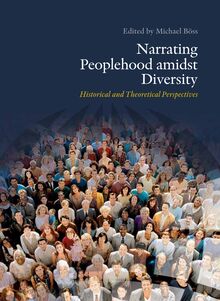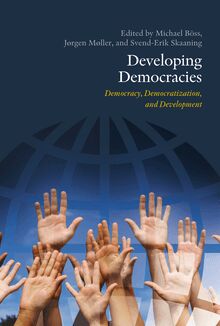-
 Univers
Univers
-
 Ebooks
Ebooks
-
 Livres audio
Livres audio
-
 Presse
Presse
-
 Podcasts
Podcasts
-
 BD
BD
-
 Documents
Documents
-
- Cours
- Révisions
- Ressources pédagogiques
- Sciences de l’éducation
- Manuels scolaires
- Langues
- Travaux de classe
- Annales de BEP
- Etudes supérieures
- Maternelle et primaire
- Fiches de lecture
- Orientation scolaire
- Méthodologie
- Corrigés de devoir
- Annales d’examens et concours
- Annales du bac
- Annales du brevet
- Rapports de stage
La lecture à portée de main
223 pages
English
Découvre YouScribe en t'inscrivant gratuitement
Je m'inscrisDécouvre YouScribe en t'inscrivant gratuitement
Je m'inscris
Obtenez un accès à la bibliothèque pour le consulter en ligne
En savoir plus
En savoir plus
223 pages
English
Obtenez un accès à la bibliothèque pour le consulter en ligne
En savoir plus
En savoir plus

Description
The Middle East captured front pages worldwide for the alleged Arab Spring in 2011. Large segments of the populations of Tunisia, Libya, Egypt, and Syria took to the streets to voice their protest against autocratic regimes and to demand democracy. Violent uprisings followed, but the prospects of liberal democracy are still uncertain and distant. No wonder. Democratization took a couple of centuries in the West. And even today, well-established Western democracies are under pressure from globalization and regionalization, and many claim representative democracy is in need of renewal. This collection of essays focuses on a number of theoretical issues associated with democracy and democratization. Divided into three parts, the first part analyzes how democracy may be understood, explained and measured. The second part deals with issues of democracy, international stability, and development in fragile and developmental states and regions. The third part of the book looks at representative democracy in old democracies and its potential for development.
Sujets
Informations
| Publié par | Aarhus University Press |
| Date de parution | 31 octobre 2013 |
| Nombre de lectures | 0 |
| EAN13 | 9788771241174 |
| Langue | English |
| Poids de l'ouvrage | 2 Mo |
Informations légales : prix de location à la page 0,1550€. Cette information est donnée uniquement à titre indicatif conformément à la législation en vigueur.
Extrait
Editedby MichaelBöss, Jørgen Møller, and SvendErik Skaaning Developing Democracies Democracy, Democratization, and Development
Developing Democracies
This page is protected by copyright and may not be redistributed
Developing Democracies
Democracy, Democratization, and Development
Edited by Michael Böss, Jørgen Møller, and SvendErik Skaaning
A A R H U S U N I V E R S I T Y P R E S S
This page is protected by copyright and may not be redistributed
Developing Democracies MatchPoints 4 © the authors and Aarhus University Press Graphic design and typeset by Narayana Press Cover design by Jørgen Sparre Cover photo by Mangostock Ebook production by Narayana Press,Denmark
ISBN 978 87 7124 117 4 ISSN 19043384
Aarhus University Press
Aarhus Langelandsgade 177 DK – 8200 Aarhus N www.unipress.dk
Published with the financial support of The Aarhus University Research Foundation
INTERNATIONAL DISTRIBUTORS:
Gazelle Book Services Ltd. White Cross Mills Hightown, Lancaster, LA1 4XS United Kingdom www.gazellebookservices.co.uk
ISD 70 Enterprise Drive Bristol, CT 06010 USA www.isdistribution.com
Weblinks were active when the book was printed. They may no longer be active
This page is protected by copyright and may not be redistributed
Contents
General Introduction: The Crooked Roads of Democratization. . . . . . . . . . . . . . . . . . . . . . . . . . . .
Notes on Contributors . . . . . . . . . . . . . . . . . . . . . . . . . . . . . . . . . . . . . . . . . . . . . . . . . . . . . . . . . . . . . . . . . . . . . .
PART 1 ∙ CONCEPTUALIZING, MEASURING, AND EXPLAINING DEMOCRACY
Introduction to Part 1: Conceptualizing, Measuring, and Explaining Democracy . . . . . . . . .
The Transition from Direct to Representative Democracy Mogens Herman Hansen . . . . . . . . . . . . . . . . . . . . . . . . . . . . . . . . . . . . . . . . . . . . . . . . . . . . . . . . . . . . . . . . . . . . . . .
Core Criteria for Democracy: Is Responsiveness Part of the Inner Circle? HansJoachim Lauth . . . . . . . . . . . . . . . . . . . . . . . . . . . . . . . . . . . . . . . . . . . . . . . . . . . . . . . . . . . . . . . . . . . . . . . . . . . .
The Democracy Barometer: A New Instrument to Measure the Quality of Democracy and Its Potential for Comparative Research Wolfgang Merkel, Marc Bühlmann, Lisa Müller, and Bernhard Weßels . . . . . . . . . . . . . . . . . . . . . . . . . . . . . . .
The Lopsided Dynamics of Democratization Jørgen Møller and SvendErik Skaaning . . . . . . . . . . . . . . . . . . . . . . . . . . . . . . . . . . . . . . . . . . . . . . . . . . . . . . . . . .
PART 2 ∙ DEMOCRACY, DEVELOPMENT, AND INTERNATIONAL STABILITY
Introduction to Part 2: Democracy, Development, and International Stability . . . . . . . . . . .
Early Elections, Weak Institutions, and the Risk of Violence Jack Snyder . . . . . . . . . . . . . . . . . . . . . . . . . . . . . . . . . . . . . . . . . . . . . . . . . . . . . . . . . . . . . . . . . . . . . . . . . . . . . . . . . . . .
Governance Trumps Democracy: Examining the African Experience Robert I. Rotberg . . . . . . . . . . . . . . . . . . . . . . . . . . . . . . . . . . . . . . . . . . . . . . . . . . . . . . . . . . . . . . . . . . . . . . . . . . . . . . .
7
14
21
24
37
50
69
87
90
98
Competitive Elections and Agricultural Sector Initiatives in subSaharan Africa Anne Mette Kjær and Ole Therkildsen . . . . . . . . . . . . . . . . . . . . . . . . . . . . . . . . . . . . . . . . . . . . . . . . . . . . . . . . . . . .116
Democracy Is not Enough: The Real Challenges to Democracy Promotion in Fragile States Georg Sørensen . . . . . . . . . . . . . . . . . . . . . . . . . . . . . . . . . . . . . . . . . . . . . . . . . . . . . . . . . . . . . . . . . . . . . . . . . . . . . . . .137
This page is protected by copyright and may not be redistributed
PART 3 ∙ REPRESENTATIVE DEMOCRACY AND DEMOCRATIC RENEWAL
Introduction to Part 3: Representative Democracy and Democratic Renewal . . . . . . . . . . . .153
Democracy as Dialogue and Partnership: The Democratic Philosophy of Hal Koch in Light of Democratic ‘Deficit’ and ‘Decay’ Michael Böss . . . . . . . . . . . . . . . . . . . . . . . . . . . . . . . . . . . . . . . . . . . . . . . . . . . . . . . . . . . . . . . . . . . . . . . . . . . . . . . . . .155
Democratic Governance and the Challenge of Executive Dominance in International and National Settings John Erik Fossum and David Laycock . . . . . . . . . . . . . . . . . . . . . . . . . . . . . . . . . . . . . . . . . . . . . . . . . . . . . . . . . . . . .176
Bespoke Democracy: Direct Political Participation for the Consumer Age? Matt H. Qvortrup . . . . . . . . . . . . . . . . . . . . . . . . . . . . . . . . . . . . . . . . . . . . . . . . . . . . . . . . . . . . . . . . . . . . . . . . . . . . . . .191
“To Model a New Way of Democracy”: The Case of National Forums in Iceland Vilhjálmur Árnason . . . . . . . . . . . . . . . . . . . . . . . . . . . . . . . . . . . . . . . . . . . . . . . . . . . . . . . . . . . . . . . . . . . . . . . . . . . . .203
Index. . . . . . . . . . . . . . . . . . . . . . . . . . . . . . . . . . . . . . . . . . . . . . . . . . . . . . . . . . . . . . . . . . . . . . . . . . . . . . . . . . . . . . . .
This page is protected by copyright and may not be redistributed
217
■General Introduction: The Crooked Roads of Democratization
Michael Böss
In 2010, when I began contacting potential speakers for the following year’s interna-tional MatchPoints Seminar at Aarhus University – on ‘Democracy, Democratization and Development’ – no one yet had the faintest idea of the series of events which would unfold in the Arab world only a year later, and which would add a significance to the seminar which I as its convener had not even dreamed of. By then, what the international media had been quick to hail as the ‘Arab Spring’, some academics had already begun to compare with the equally dramatic and un-foreseen ‘third wave’ of democratization after the fall of the Berlin Wall in 1989. Others were reluctant to proclaim the events in Tunisia and Egypt as evidence of a fourth wave of democratization. Francis Fukuyama, in his final year as Distin-guished Visiting Professor at Aarhus, opened the seminar with notes of hope: the revolutions should indeed be seen as a sign of hope and change in societies that had been suffering under authoritarian regimes and which the West, due to the fact that political Islam had so far appeared to be the only alternative, had long been regarded as unsusceptible to liberal democracy. The events in the Middle East since 2011 do confirm that this part of the world is not ‘immune’ to democracy, as many observers have long claimed. However, history doesn’t move in a linear way. The Arab Spring did lead to the removal of authoritarian governments in Tunisia, Egypt and Libya, but it is still difficult to predict the final outcome. Developments since May 2011 give reasons for caution. Tunisia and Libya still have a long way to go towards a democratic order, and hopes for the introduction of liberal democracy in Egypt have been fading since the elec-tion of Mohammad Morsi, the presidential candidate of the Muslim Brotherhood, especially after Morsi broke ranks with the revolutionary movement with a special decree that enhanced his own powers and secured the passing of a constitution which was based on sharia law, discriminated against religious minorities and secularists, and didn’t protect the basic rights of citizens. When it passed by refer-endum in December 2012, Egypt seemed just to have replaced ‘one-man-tyranny’ with ‘democratic dictatorship’, thus confirming Fareed Zakaria’s critique of ‘illiberal
C O N T E N T S I N D E X This page is protected by copyright and may not be redistributed
7
democracy’, which he voiced in his bestselling book from 2003 – and which he also 1 rehearsed at the Aarhus seminar. In other words: Revolutions have not proved enough. Nor have elections. What will matter for democratization in the long run is institution building: democratic constitutions, the rule of law, the formation of political parties, an independent system of justice, democratic accountability, an uncorrupt civil service, and a well-functioning state system. Interviewed by the British newspaperThe Guardianon his way back from the Aarhus seminar – promoting the first volume of his recent analysis of the “origins of political order” – Francis Fukuyama aired further somber concerns about the future of democracy. In Russia, Asia, and even in the West there were serious “blips” and dark clouds gathering. “Nothing good” had happened in Russia since Putin came to power, and China was a “really interesting challenge” due to its “very high-quality authoritarian government.” In addition, there was reason to be concerned with the challenges posed by globalization: in Europe, the immigration of Muslims was controversial and therefore giving rise to political populism. At the same time, economic globalization was putting pressure on welfare systems: a lot of developed democracies would have to “renegotiate their basic social contract, because a lot of the welfare state arrangements are just not sustainable, and that’s 2 something democracies are really not good at.” Also in the United States, democracy had come under pressure from a globalized capitalism. Increasing economic inequality was threatening to erode the middle-class base of liberal democracy. At the Aarhus seminar, Fukuyama discussed the unhappy consequences of congressional gridlock since the election of President Obama for voter confidence in the political system. In a later article inForeign Affairs, Fukuyama deplored the lack of a left-wing “counter-narrative” to balance the right-wing populism of the Tea Party movement. Such a narrative would have to begin with “a critique of the elites that allowed the benefit of the many to be sacrificed to that of the few and a critique of the money politics, especially in Washington, 3 that overwhelmingly benefits the wealthy.” Similarly, Charles A. Kupchan, in the same issue ofForeign Affairs, diagnosed a “democratic malaise”, again as a side-product of globalization. As he elaborated in his new book,No One’s World, a “crisis of governability” has at present en-gulfed advanced democracies, and has led to political breakdowns and stalemates
1. Fareed Zakaria,The Future of Freedom: Illiberal Democracy at Home and Abroad(New York: Noron, 2003). 2. “Francis Fukuyama: ‘Americans are no very good a naion-building,’”Guardian, May 23, 2011. Francis Fuku-yama,The Origins of Political Order(New York: Farrar, Sraus and Giroux, 2011). 3. “Te Fuure of Hisory: Can Liberal Democracy Survive e Decline of e Middle Class?”,Foreign Affairs(January/ February 2012). See also Francis Fukuyama, “Dealing wi Inequaliy,” inPoverty, Inequality, and Democracy, ed. Francis Fukuyama, Larry Diamond, and Marc F. Planer (Balimore: Jons Hopkins Universiy Press, 2012), 3-13. Te aricle firs appeared in e July 2011 issue of eJournal of Democracy.
8
C O N T E N T S I N D E X This page is protected by copyright and may not be redistributed
in Europe, the United States, and Japan. Globalization is producing ever widening gaps between “what electorates are asking of their governments and what those governments are able to deliver,” and this mismatch between the growing demand for good governance and shrinking supply is “one of the gravest challenges facing 4 the Western world today.” Popular unrest, the rise of extreme right-wing parties and the replacement of democratic by technocratic governments in Southern Europe in the wake of the eurocrisis have given some credence to this perception. Other observers have been noting an increasing number of “dissatisfied 5 6 democrats” and “critical citizens” in both advanced and new democracies. Draw-7 ing on David Easton’s parameters of gauging political support, Norris and her col-laborators concluded in 1999 that these citizens were not “critical” in the sense of rejecting democratic ideals and democracy as a system of government, however, but were convinced democrats who were losing confidence in politicians and the way in which core institutions of representative government – political parties, parliaments, and governments – were working and being run by the political elites. Re-visiting this thesis 12 years later, Norris re-confirmed these observations: contrary to the prevalent view, evidence gathered from a huge set of data demonstrates that support for democracy as a political system has not eroded across a wide range of countries around the world, including established democracies in the United States and West-ern Europe. However, Norris warns against the potential consequences of growing ‘democratic deficit’: “In many countries today, satisfaction with the performance of 8 democracy diverges from public aspirations.” It is the gap between aspirations and satisfaction that is captured by the concept of ‘democratic deficit’. The concept was originally used about the perceived gap between the decision-making processes of the EU and the democratic standards of European nation-states, but is now gener-ally applied to any instance where perceived democratic performance falls short of 9 public expectations. Norris admits of multiple explanatory causes of democratic deficit, but concludes that the most plausible potential explanation suggests that it arises from a combination of “growing public expectations, negative views, and/or failing government performance,” and she warns against taking this development
4. Carles A. Kupcan, “Te Democraic Malaise: Globalizaion and e Trea o e Wes,”Foreign Affairs, (Janu-ary/February 2012); Carles A. Kupcan,No One’s World: The West, the Rising West and the Coming Global Turn(New York: Oxford Universiy Press, 2012). 5. Russell J. Dalon,Democratic Challenges, Democratic Choices(Oxford: Oxford Universiy Press, 2004). 6. Pippa Norris (ed.),Critical Citizens: Global Support for Democratic Governance(Oxford: Oxford Universiy Press, 1999). 7. David Eason,A Framework for Political Analysis(Englewood Cliffs, NJ: Prenice Hall, 1965). 8. Pippa Norris,Democratic Deficit: Critical Citizens Revisited(Cambridge: Cambridge Universiy Press, 2011), 4. 9. See, for example, Mark E. Warren, “Ciizen Represenaives,” inDesigning Deliberative Democracy, ed. Mark E. Warren and Hilary Pearse(Cambridge: Cambridge Universiy Press, 2008), 50-69.
C O N T E N T S I N D E X This page is protected by copyright and may not be redistributed
9
-
 Univers
Univers
-
 Ebooks
Ebooks
-
 Livres audio
Livres audio
-
 Presse
Presse
-
 Podcasts
Podcasts
-
 BD
BD
-
 Documents
Documents
-
Jeunesse
-
Littérature
-
Ressources professionnelles
-
Santé et bien-être
-
Savoirs
-
Education
-
Loisirs et hobbies
-
Art, musique et cinéma
-
Actualité et débat de société
-
Jeunesse
-
Littérature
-
Ressources professionnelles
-
Santé et bien-être
-
Savoirs
-
Education
-
Loisirs et hobbies
-
Art, musique et cinéma
-
Actualité et débat de société
-
Actualités
-
Lifestyle
-
Presse jeunesse
-
Presse professionnelle
-
Pratique
-
Presse sportive
-
Presse internationale
-
Culture & Médias
-
Action et Aventures
-
Science-fiction et Fantasy
-
Société
-
Jeunesse
-
Littérature
-
Ressources professionnelles
-
Santé et bien-être
-
Savoirs
-
Education
-
Loisirs et hobbies
-
Art, musique et cinéma
-
Actualité et débat de société
- Cours
- Révisions
- Ressources pédagogiques
- Sciences de l’éducation
- Manuels scolaires
- Langues
- Travaux de classe
- Annales de BEP
- Etudes supérieures
- Maternelle et primaire
- Fiches de lecture
- Orientation scolaire
- Méthodologie
- Corrigés de devoir
- Annales d’examens et concours
- Annales du bac
- Annales du brevet
- Rapports de stage
Signaler un problème
YouScribe
Le catalogue
Le service
© 2010-2024 YouScribe












